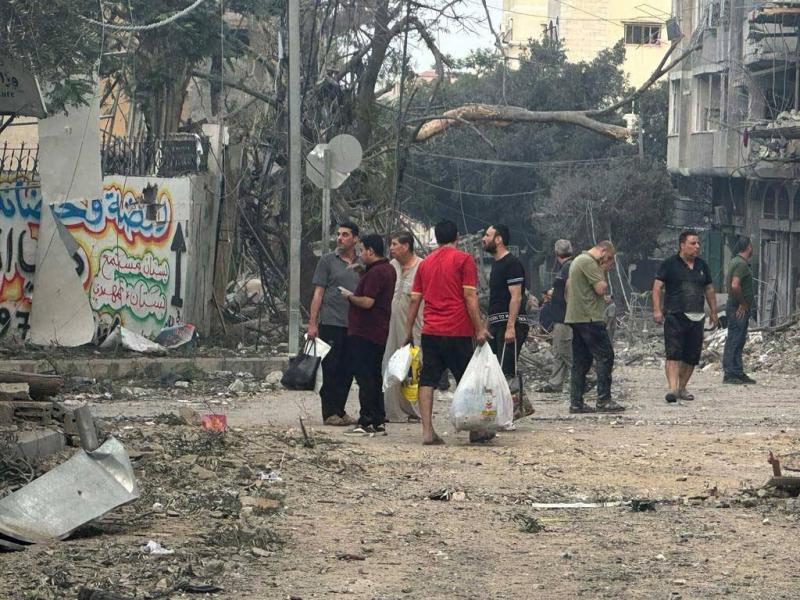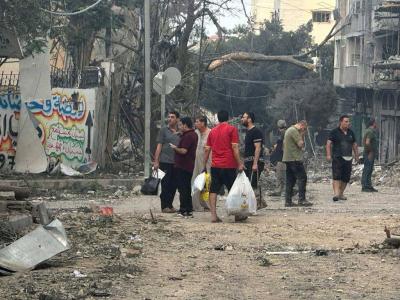Residents of the Gaza Strip are isolated from the world and from one another due to a complete disruption of mobile phone and internet services. Connecting with relatives, ambulances, or colleagues in any location has become nearly impossible as Israel has intensified its airstrikes in conjunction with a ground assault. International humanitarian organizations have stated that the service interruption, which began on Friday evening, exacerbates the already deteriorating situation by hindering life-saving operations and preventing organizations from communicating with their teams on the ground.
Three weeks after the outbreak of war between Israel and the Palestinian Islamic resistance movement (Hamas), which has dominated global media coverage, the communication blackout also means that the previous continuous flow of information, images, and videos from within the strip has dwindled, complicating the understanding of the most recent attacks and their impact.
Independent journalist Belstia Al-Aqad in Gaza said, "My mind cannot comprehend that there could be something worse than this happening. On the twenty-first day, there is no service; if you are dying, you cannot call an ambulance, if you are bombed, whatever happens, you cannot call or communicate with anyone." Belstia made these remarks in a recorded video posted on Saturday on Instagram, where she has 1.4 million followers. She stated she made the post when she managed to connect to the internet, being one of the few residents of Gaza who could do so. She added, "I am supposed to tell the world what is happening, but I am in Gaza and do not know what is happening. There is no internet, no network, no way to communicate, no fuel to drive, no electricity, nothing."
Israeli Defense Minister Yoav Gallant stated on Saturday that Israeli forces would continue the operations that began overnight in the Gaza Strip targeting Hamas tunnels and other infrastructure, as well as its leaders. He mentioned in a video statement, "We have carried out attacks above and below ground and targeted terrorists of all ranks everywhere."
Previously, Israel has only launched brief attacks on Gaza during the ongoing three-week bombardment to eliminate Hamas militants, whom Israel claims killed 1,400 Israelis, most of whom were civilians, on October 7. The Palestinian Health Ministry reported on Saturday that 7,650 people had been killed, and 19,450 had been injured in Gaza since the beginning of the Israeli bombardment. It noted that 70% of the fatalities in Gaza and the West Bank are women, children, and the elderly.
The communication blackout leaves Gaza an isolated territory. The World Food Program, the World Health Organization, and several other organizations, including independent relief organizations like Médecins Sans Frontières and the Norwegian Refugee Council, are among those reporting that they have lost contact with their teams in Gaza. Several humanitarian organizations have alleged that Israel intentionally cut communications in the territory. The Israeli army has not yet responded to requests for comment. Reuters has not been able to independently verify the reasons for the communication outage.
The Palestinian Red Crescent Society wrote on platform X, "Israeli authorities have cut fixed-line, mobile phone, and internet communications, which severely harms our essential emergency medical services." For media organizations, including Reuters, the inability to stay connected with teams in Gaza raises concerns about their safety and makes it difficult to send comprehensive reports on what is happening.
The Israeli army claims it does not intentionally target journalists but cannot guarantee their safety in Gaza. One Reuters reporter wrote in a message to colleagues, "The bombardment is intense everywhere in the sector." This message is one of the few that Reuters staff inside Gaza were able to send on Saturday. Independent photographer Mohamed Zaanoun, residing in Gaza, stated, "This could be the last video I post for you," speaking from within the region in a video shared on Instagram on Saturday morning. He added, "Today I walked a long distance to reach the Egyptian border so I could share this video and tell you that Gaza has been cut off from the world."




